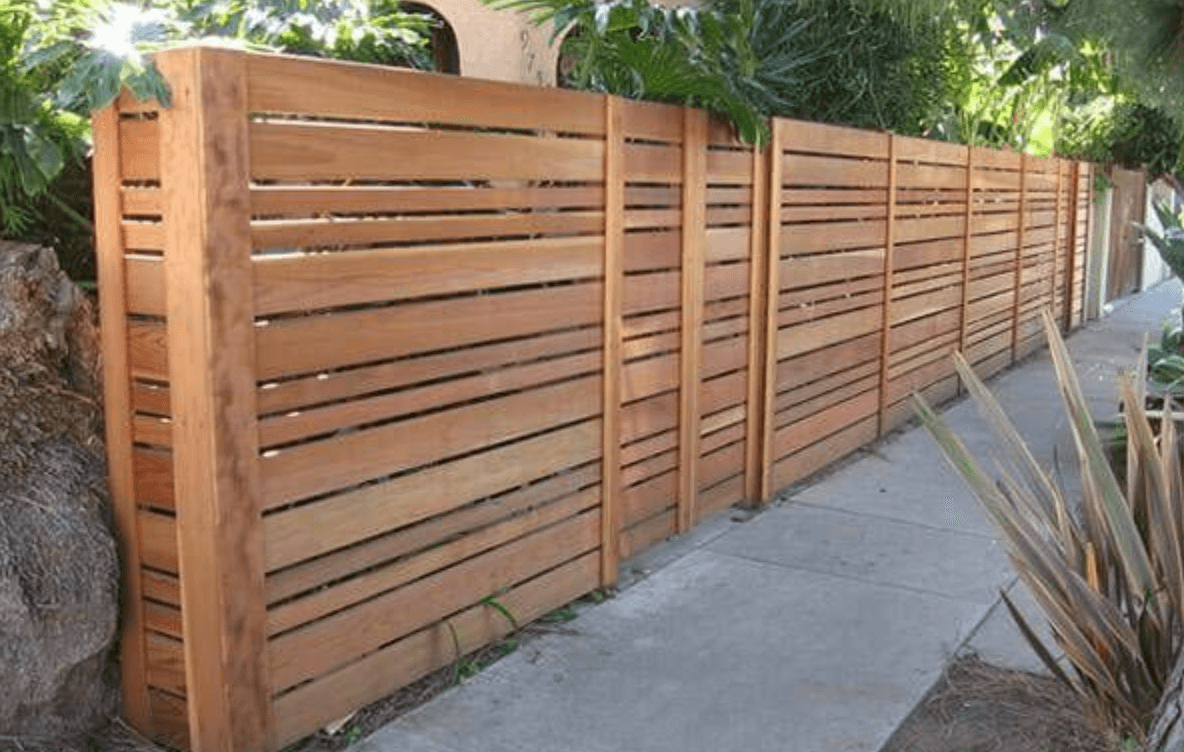All Categories
Featured

Choosing the appropriate fencing material is important for attaining the equilibrium of durability, visual appeals, and capability that matches your building. Timber, vinyl, and light weight aluminum are preferred choices, each with distinct functions that deal with details needs. Below's an in-depth take a look at the benefits and disadvantages of these 3 materials.
Timber Fencing. Pros:. Timeless Appeal: Timber provides a natural, timeless look that enhances numerous building designs. Personalized: It can be painted or discolored in a selection of layouts and colors. Budget-friendly: Timber fences are often more affordable upfront than plastic or aluminum. Eco-Friendly: As a renewable energy, wood is sustainable and biodegradable when sourced properly. Cons:. Maintenance-Intensive: Requires normal discoloration, painting, or sealing to secure versus weather condition and insects. Much Shorter Lifespan: Relying on the kind of timber and climate, it normally lasts 10-15 years. Vulnerability to Damage: Prone to rotting, warping, and termite damage without proper care. Wood is perfect for property owners that value visual appeals and agree to invest time and effort in upkeep to lengthen its life.
Vinyl Fencing. Pros:. Resilient: Immune to insects, rot, and climate, plastic keeps its framework in rough problems. Low Maintenance: Needs little upkeep beyond occasional cleaning. Lengthy Life-span: Vinyl can last 20-30 years without considerable wear or damages. Flexible Styles: Offered in numerous shades, textures, and styles, including alternatives that resemble timber. Disadvantages:. Expensive Installment: Plastic fencings are a lot more expensive to mount contrasted to wood. Brittle in Winter: Plastic can fracture in severe cool climates. Challenging to Repair: If damaged, entire sections may require replacement, which can be testing to match. Plastic fencing is a wonderful choice for those prioritizing longevity and minimal upkeep, also if it includes a higher ahead of time cost.

Aluminum Secure Fencing. Pros:. Rust-Resistant: Aluminum does not rust, making it perfect for moist or moist locations. Lightweight but Solid: Deals toughness without being excessively hefty, which streamlines setup. Reduced Upkeep: Requires little bit greater than cleaning and occasional repainting. Longevity: Aluminum fences can last for decades without significant deterioration. Stylish Layouts: Typically made use of for ornamental functions, light weight aluminum includes refinement to any building. Disadvantages:. High First Expense: Light weight aluminum fencings are amongst the extra pricey options. Limited Privacy: Often made with open rooms, they do not block sights or noise. Prone to Damages: While durable, light weight aluminum can be dented or bent with heavy impact. Light weight aluminum is ideal matched for those who desire a long-lasting, trendy fence and don't need full personal privacy.
Making the Right Option. Each material has its weaknesses and staminas:

Wood is ideal for standard visual appeals and eco-conscious purchasers that do not mind maintenance. Vinyl helps home owners looking for a weather-resistant, low-maintenance option. Light weight aluminum is a long lasting, ornamental alternative for those who want style and durability. Consider your top priorities-- whether it's cost, look, privacy, or upkeep-- and get in touch with a fence professional to select the product that finest satisfies your demands. A well-selected fencing will enhance your residential or commercial property for many years ahead.
Latest Posts
Fanatics Sportsbook: The Ultimate Sports Betting Experience
Published Apr 19, 25
1 min read
Laminate Floor Covering: Design Fulfills Longevity at Carpet Interiors Floor & Home
Published Apr 18, 25
2 min read
Discover the Perfect Floor Tile Flooring at Carpet Interiors Floor & Home
Published Apr 18, 25
1 min read
More
Latest Posts
Fanatics Sportsbook: The Ultimate Sports Betting Experience
Published Apr 19, 25
1 min read
Laminate Floor Covering: Design Fulfills Longevity at Carpet Interiors Floor & Home
Published Apr 18, 25
2 min read
Discover the Perfect Floor Tile Flooring at Carpet Interiors Floor & Home
Published Apr 18, 25
1 min read